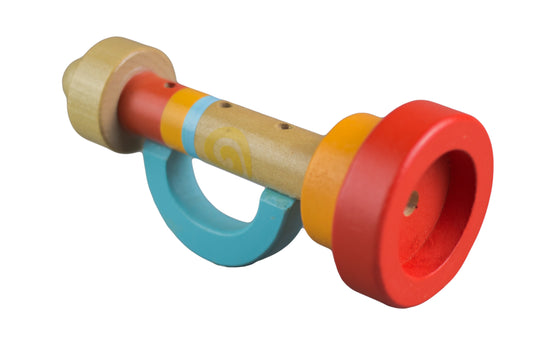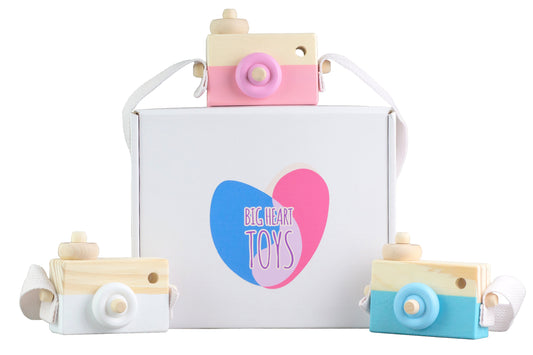Parenting a child with autism is a passionate, rewarding role, but it can also be one of the most draining. Emotionally, physically, and mentally, you can quickly fall into a state of burnout. There are a few vital strategies to help parents navigate these challenges, maintain their own well-being, and provide the best support for their children.
What Is Parental Burnout?
Parental burnout is a state of physical, emotional, and mental exhaustion experienced by parents, particularly those caring for children with special needs like autism. It's characterized by overwhelming stress, a sense of depletion, and a feeling of being unable to meet the demands of parenting effectively.
Common Signs and Symptoms
The most common symptoms include persistent fatigue, irritability, loss of interest in activities, withdrawal from social interactions, a sense of hopelessness, disrupted sleep patterns, and decreased productivity. Parents experiencing burnout may struggle to balance their own well-being with the demands of caregiving, impacting both their mental health and their ability to provide optimal support for their child with autism.
You may notice yourself being less motivated by things you once enjoyed and feeling down more often than not. Day-to-day tasks may feel more daunting or frustrating.
How Is Parental Burnout Different From General Stress?
Burnout differs from general stress in its intensity, duration, and specific triggers. While general stress can arise from various life events and circumstances, parental burnout is primarily linked to the continuous and often intense responsibilities of caregiving.
Parental burnout tends to be more severe and all-encompassing. It's a state of chronic exhaustion that affects every aspect of a parent's life, whereas general stress can be more situational and manageable. It often persists over a longer period, sometimes even for years, if not addressed, while general stress is usually temporary and tied to specific events.
Long-term impacts of parental burnout can be severe and may include physical health issues related to prolonged stress, mental health struggles, relationships, and family dynamics.
Why Are Parents of Children With Autism More Prone to Burnout?
Parents of children with autism are more prone to burnout due to the complex and enduring challenges they face. Children with autism often require continuous attention, supervision, and specialized care. Difficulty in communication can make it hard for parents to understand their child's needs and feelings. Challenging behaviors and sensory sensitivities only add to the stress.
Emotional, Physical, and Financial Stressors
Coping with the emotional impact of autism, including feelings of grief and uncertainty about the future, takes an emotional toll. There is a persistent feeling of fear and worry regarding not only day-to-day events but the future as well. You may struggle with what-ifs or comparisons from time to time, which is emotionally draining.
The demanding caregiving tasks can lead to physical fatigue. There is no such thing as “time off.” In parenting a child with autism, you also take on the role of caregiver. As your child gets bigger and behaviors get more severe, your role can get more and more physically daunting.
Expenses related to therapies, interventions, and specialized education can be substantial. You only want what’s best for your little one, but these things add up quickly and can lead to financial stress or hardship.
The Impact of Societal Attitudes and Lack of Support
Parents often face stigma and judgment from society. Many people lack awareness and understanding of autism, making it harder for parents to find social support. Insufficient access to quality healthcare and educational services can exacerbate the challenges.
How Can These Challenges Lead to Burnout?
The combination of these challenges creates chronic stress that accumulates over time. Parents may deplete their emotional and physical reserves, making it harder to manage stress effectively. The feeling of being alone in their struggles can lead to social isolation and further stress. Due to the demands of caregiving, parents may neglect self-care, exacerbating their vulnerability to burnout.
The process of burnout typically starts with chronic stress and progresses as coping mechanisms break down. Parents may experience emotional exhaustion, detachment from their role, and reduced personal accomplishment. These challenges contribute to a sense of helplessness and hopelessness, ultimately leading to burnout.
How Can Parents of Children With Autism Avoid Burnout?
To prevent burnout, it's crucial to recognize these challenges, seek support, prioritize self-care, and advocate for the needs of children with autism and their families within society. Dedicate time to activities that rejuvenate you, whether exercise, hobbies, or relaxation. Establish clear boundaries for personal time and caregiving responsibilities to prevent overwhelm.
Connect with other parents of children with autism for mutual understanding and empathy. Share responsibilities and ask for help when needed from your support network. It takes a village, and sometimes, as parents of children with autism, that village is a little harder to find but well worth the search.
What Self-Care Strategies Can Help?
When financially and physically possible, professional support may be worth looking into. Consider individual or family therapy to cope with stress, anxiety, or grief related to autism.
Creating a structured daily schedule can help your child and yourself feel more in control. Through mindfulness and meditation, you can practice techniques that promote emotional resilience and stress reduction. Learn and use stress management techniques such as deep breathing, progressive muscle relaxation, or yoga.
Self-care and the establishment of support networks are pivotal. They provide emotional outlets and assistance in managing daily challenges. By implementing these strategies, parents can reduce the risk of burnout and better support their child's growth and development.
How Can Support Networks Assist in Avoiding Burnout?
Support networks are essential for parents of children with autism to avoid burnout. These networks offer emotional, practical, and social assistance that can make a significant difference. Emotionally, they provide understanding, validation, and coping strategies, reducing the isolation parents often feel.
Practically, they may offer respite care, help with daily tasks, or arrange child care exchanges, giving parents much-needed breaks. Socially, support networks foster friendships and organize playdates, facilitating connections with others who understand the unique challenges of autism. They also serve as a valuable source of information, sharing resources and knowledge to empower parents in their caregiving journey.
How Can Big Heart Toys Help in This Journey?
Big Heart Toys can be an invaluable ally in the journey of parents with children on the autism spectrum. Their mission of providing affordable, accessible, and credible resources aligns perfectly with the needs of parents in several ways.
Our commitment to affordability, accessibility, and credibility aligns perfectly with the needs of parents of children with autism. By providing reliable, cost-effective resources that support learning, communication, and sensory integration, Big Heart Toys plays a vital role in assisting parents on their journey of caring for and nurturing the development of their children with autism.
Which Big Heart Toys Can Help Alleviate Some of the Stressors?
Big Heart Toys offers a variety of products that can help alleviate some of the stressors faced by parents of children with autism. Tactile toys for kids like fidget spinners, sensory balls, or sensory chew necklaces can help children with autism self-regulate and manage sensory sensitivities. These toys provide a calming effect, reducing stress for both the child and the parent.
Big Heart Toys' social stories for kids with autism are valuable tools for teaching social skills and behavior expectations. They can help parents address challenging behaviors and improve communication, making daily interactions less stressful.
Big Heart Toys' products are designed to address various aspects of a child's development and well-being. By providing these resources, parents can better support their child's unique needs, reduce daily stressors, and create a more supportive and harmonious family environment.
How Does the Big Heart Toys Community Provide Support?
The community provides a platform for parents to connect and share their experiences with others who are on similar journeys. This shared understanding creates a sense of belonging and reduces feelings of isolation. Members of the community can offer each other emotional support, advice, and encouragement. Parents can ask questions, seek guidance, and receive empathy from those who have faced similar challenges.
The community serves as a hub for sharing information and resources related to autism and parenting. Big Heart Toys often collaborates with experts in the field of autism to provide expert insights, educational content, and guidance to the community.
Knowing that there is a supportive community to turn to can reduce the stress and anxiety parents often experience when raising a child with autism. It provides a sense of security and assurance.
Big Heart Toys community creates a network of individuals who understand the unique challenges and joys of parenting a child with autism. This network offers emotional, informational, and practical support, fostering a sense of camaraderie and empowerment among parents and caregivers.
The Bottom Line
Parents of children with autism face distinct challenges that can lead to burnout, but there are strategies and support systems to help them navigate this journey successfully. Parental burnout, characterized by chronic exhaustion, is different from general stress, stemming from the unique demands of caring for a child with autism. These challenges include emotional, physical, and financial stressors, societal attitudes, and a lack of support.
Burnout can be avoided by prioritizing self-care, seeking support networks, and considering professional help. Big Heart Toys plays a pivotal role in this journey by providing affordable, accessible, and credible resources that can alleviate some of the stressors parents face.
Join the Big Heart Toys community and explore their resources to find valuable tools and connect with fellow parents. Together, we can create a brighter future for the children we love.
Sources
The Impact of Parental Burnout | APA
Six Ways to Deal With Parental Burnout | Greater Good






